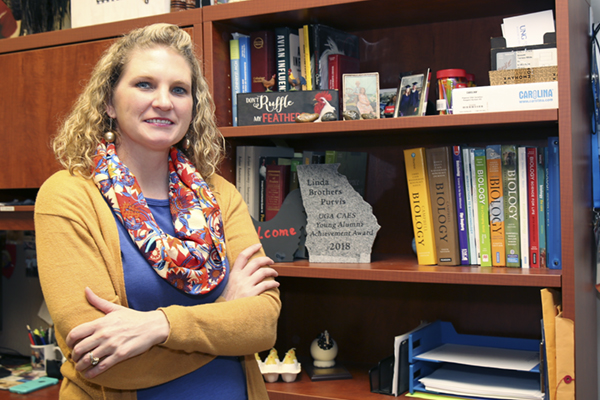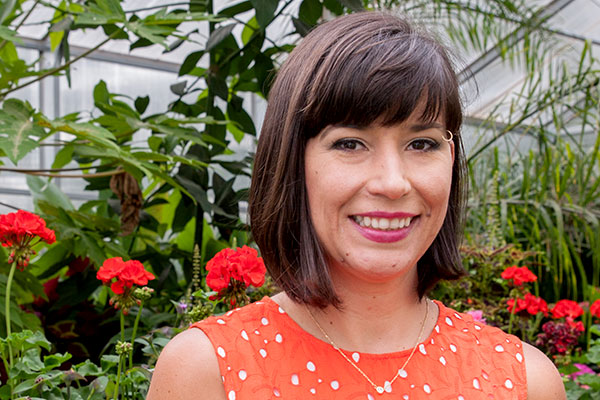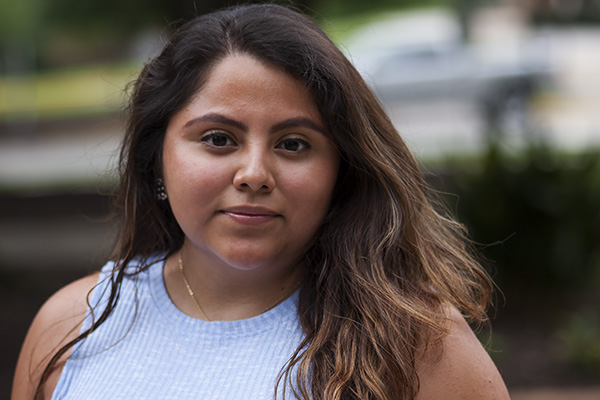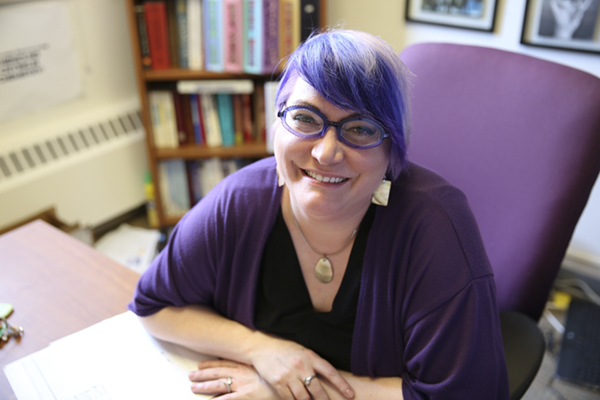Miriam Segura-Totten
After graduating with a bachelor's degree in molecular biology from Princeton, Dr. Miriam Segura-Totten attended Johns Hopkins University School of Medicine and earned a doctorate in biochemistry, cell and molecular biology. Instead of going into research, Segura-Totten veered into academe to mentor and inspire students, just like she was.
As a high school student in Puerto Rico, Miriam Segura-Totten thought she would attend a college on the island after graduation. Her mother, however, had different ideas.
"My mother made me apply to schools in the United States," said Segura-Totten, professor of biology at the University of North Georgia (UNG) and Harry B. Forester Eminent Scholars chair. "I got into Princeton University. I chose to attend there because it had a good community of Puerto Ricans. It was beautiful and looked like nowhere that I had been before."
This small push from her mother, which included an earlier nudge to join the Math Club in high school, set Segura-Totten on a path of success. Her Princeton professors nurtured her love for biology.
"I have a huge passion for biology," she said. "I get excited about biology."
Her Ivy League professors also gave Segura-Totten the confidence to further her career in the Science, Technology, Engineering, and Mathematics (STEM) fields. She applied for and received a Mellon Mays Undergraduate Fellowship, which aims to increase diversity in the faculty ranks of institutions of higher learning by motivating outstanding undergraduates from minority backgrounds to pursue graduate programs.
"That was a pivotal moment, when a seven-person faculty panel saw the potential in me to attend graduate school," Segura-Totten said. "And I thought 'I can do this.'"
After graduating with a bachelor's degree in molecular biology from Princeton, she attended Johns Hopkins University School of Medicine and earned a doctorate in biochemistry, cell and molecular biology. While many post-graduates go into research fields, Segura-Totten veered into academe. She wanted to mentor and inspire students, just like she was.
"Mentoring students is having those conversations … about finding their passions and pursuing them," she said.
Segura-Totten has succeeded there. In fall 2017, she won an Inspiring Leaders in STEM award from INSIGHT Into Diversity magazine. The award is based on a professor's efforts to inspire and encourage a new generation of young people to consider careers in STEM through mentoring, teaching, research, and successful programs and initiatives.
Earlier the same year, Segura-Totten was one of the recipients of the University System of Georgia's (USG) most prestigious teaching award, the Regent's Award for Excellence in Teaching. She also earned UNG's annual Distinguished Teaching Award, which recognizes exceptional accomplishments and contributions in teaching over the course of a distinguished career and is the highest honor UNG bestows.
UNG students are the true beneficiaries of Segura-Totten's successful teaching methods. She uses evidence-based teaching and discussions in her classes.
"I am dedicating 90 percent of class time to hands-on and active learning strategies, because the evidence suggests that students learn by doing," she said.
UNG alumnus Josh McCausland said this style helped him with his career path. The 2015 graduate won a scholarship to work at the National Institutes of Health (NIH).
"She was getting us to critically think about where modern science is going and what real scientists are publishing today," he said. "She trained me for what I was going to do."




